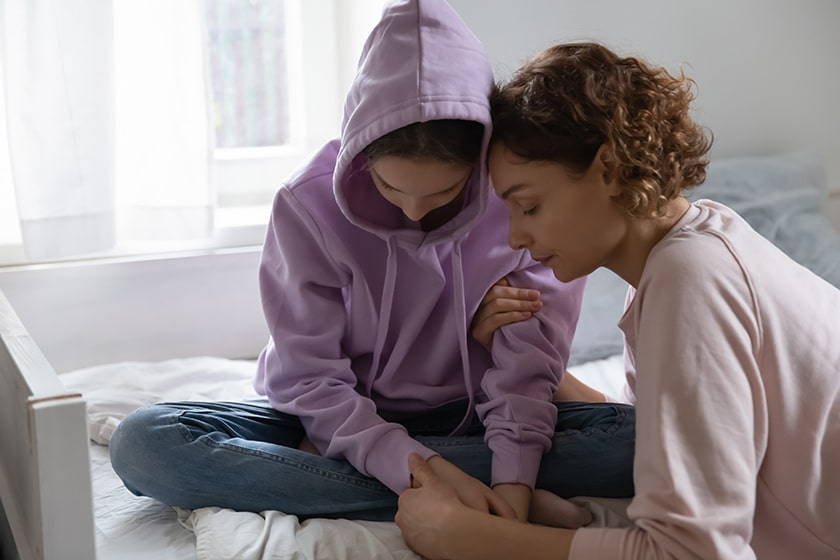All teens feel stressed sometimes. For most, stress is a normal part of life, but it doesn’t dominate life.
For others, stress and anxiety spiral into episodes of intense panic, called panic attacks. For people who have them, panic attacks often begin between the ages of 15 and 19 but can start even earlier. These episodes can cause physical symptoms like shortness of breath, sweating, choking, chest pains, dizziness, numbness, or tingling. In the middle of an attack, it feels like you’re dying. No one wants that for their kid.
Afterwards, a teen who’s experienced a panic attack may worry about something new: having another one. So, they may begin to avoid situations that they think could trigger an attack, or places where it would be especially embarrassing. They start to avoid friends and activities they used to enjoy. They might not want to go to school.
What can a parent do?
Watching your child suffer is one of the hardest parts of parenting. But avoid the urge to try to push your child to “get over it.” Try to think of yourself as your child’s teammate, working together to find ways to manage this scary new thing in their life. Some ways to do that:
- Talk to your child’s teachers and school counselors about what’s going on. Make them part of the team too.
- Help your child identify their triggers and make plans together for what to do if they feel a panic attack coming.
- Encourage your child to be active and spend time outdoors. Exercise (and nature) can have a calming effect that may help to manage stress and anxiety.
- Be a safe, listening ear. Often that’s what a struggling teen needs most.
- Don’t blame yourself, or your teen. Instead, focus that energy on finding ways to manage the problem.
Many teens have a panic attack once. When attacks happen again and again, it may be time to consider treatment.



